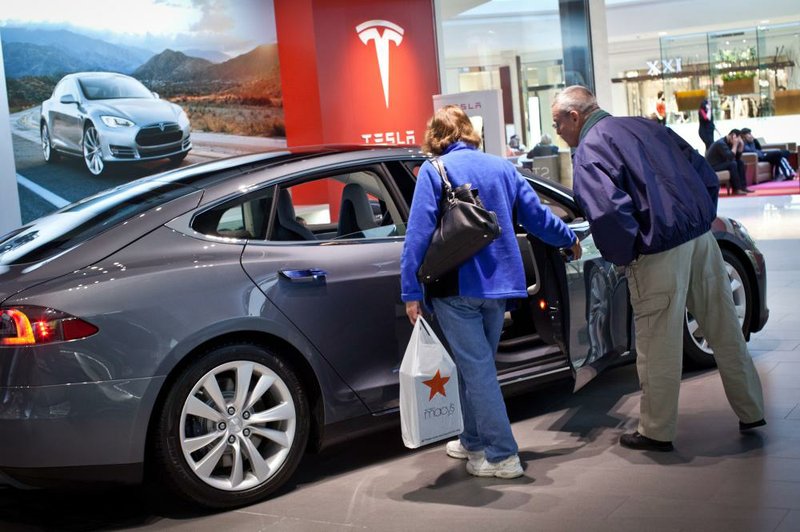TRENTON, N.J. - State motor vehicle officials have approved a regulation that would require all new car dealers to obtain franchise agreements to receive state licenses, a move critics say will hurt the electric-car industry’s attempts to expand.
The regulation, adopted Tuesday by the state’s Motor Vehicle Commission by a 6-0 vote, effectively prohibits companies from using a direct-sales model, which cuts out the middleman and takes vehicles directly to customers through smaller retail establishments. It will take effect April 1.
The regulation was sup-ported by the New Jersey Coalition of Automotive Retailers, which has noted that state law has long required automakers to sell their vehicles through dealers.
But Palo Alto, Calif.-based Tesla Motors, one of the electric-car companies that would be affected by it, called it “an affront to the very concept of a free market.”
Tesla said in a statement posted on its corporate website that it has been “working constructively” with the commission and Republican Gov. Chris Christie’s administration since last year to delay the proposal so it could be handled through “a fair process” in the state Legislature.
The company said the commission and the Christie administration went “beyond their authority to implement the state’s laws at the behest of a special interest group looking to protect its monopoly at the expense of New Jersey consumers.”
Administration officials disputed Tesla’s claims.
“Since Tesla first began operating in New Jersey one year ago, it was made clear that the company would need to engage the Legislature on a bill to establish their new direct-sales operations under New Jersey law,” spokesman Kevin Roberts said. “This administration does not find it appropriate to unilaterally change the way cars are sold in New Jersey without legislation, and Tesla has been aware of this position since the beginning.”
Tesla has two retail locations in New Jersey and has planned to expand in the state in an effort to sell its electric cars, which retail for around $60,000 before incentives.
Tesla may now be forced to close its stores in New Jersey, Diarmuid O’Connell, the company’s vice president of business development, said during a conference call.
“Clearly, a decision was made rather abruptly and certainly without any consultation with us,” O’Connell said. “There are probably a couple levels of bad faith and surreptitious behavior.” Information for this article was contributed by Alan Ohnsman of The Associated Press.
Business, Pages 27 on 03/13/2014
